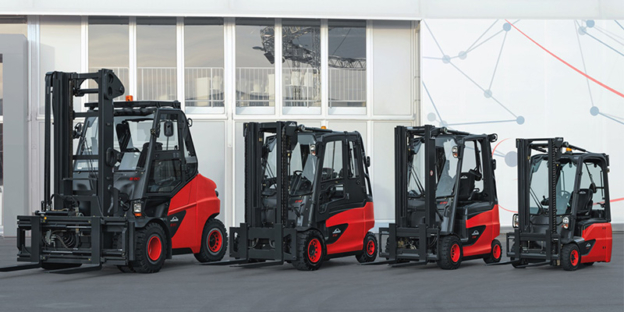The industry of warehouse and logistics is incomplete without forklifts. Forklifts are widely used to load and unload commodities in warehouses. Raw materials, packing materials, spare parts, components, and commodities from agricultural industries, manufacturing firms, etc. are usually stored in warehouses. Here, forklifts serve an important role in transporting logistics at the warehouse. They are intended to load and unload cargo from trucks, railways, airports, seaports, etc.
Significance of forklifts in material handling
Forklifts are among the most prevalent types of essentials in warehouses. Bulky loads of commodities are carried in warehouses using forklifts. Operators can easily carry large amounts of items around the facility using these forklifts. There are many different types of forklifts available in the market, based on several factors, and each one is excellent in its approach. There are generally three types of forklifts based on their energy source- diesel forklifts, electric forklifts and LPG forklifts. Let us have a look into the details of each type.
Major Types of Forklifts in the Market:
Diesel Forklift: Conventional and Frugal
A diesel forklift is the largest type of forklift. These are best for outside use, especially on uneven terrain. A new diesel forklift truck is generally substantially less expensive than an electric one. Diesel engines have far higher torque than propane or electric engines, allowing the forklifts to accomplish more significant work such as lifting bigger weights, climbing up steeper slopes, and accelerating more quickly.
Because of their endurance and durability, diesel engines often require less maintenance than propane or electric engines. These forklifts have the longest lifespan compared to electric and LPG forklifts. So, they prove budget-friendly in the long term. These forklifts often have a higher resale value than propane or electric ones.
While diesel forklifts have several advantages, they have some limitations as well. Although diesel engines require less maintenance than electric forklifts, the expense of doing so is far higher. Besides, being a diesel-powered machine, it results in a lot of carbon emissions, thus harming the environment. It is the least eco-friendly forklift of the three kinds. Also, they are very loud in their operations.
Electric Forklift: Future Ready
Instead of gasoline tanks, electric forklift trucks run solely on rechargeable batteries. They are often the smallest form of forklifts, and they work the best when used for indoor purposes. Because electric forklifts do not utilize traditional fuel, they do not incur the refuelling expenditures associated with diesel or propane. Because there is no fuel burning, noise levels are substantially lower, making these forklift trucks the quietest of the three types.
Electric forklifts are smaller and more compact than their counterparts since they do not require fuel storage. As a result, they are simpler to turn and manoeuvre, especially in tight, confined locations. Because electric forklift trucks do not use fossil fuels, they emit no carbon dioxide. This makes them more ecologically friendly than diesel or propane. So, if you value environmentally friendly machinery, deciding between an electric and a gas forklift is simple. Electric engines are less expensive to operate and repair than diesel or propane engines since their mechanics are less complex.
Although they may save money on gasoline in the long run, electric forklifts have the greatest initial cost of the three varieties. Unfortunately, the penalty of saving gasoline is dramatically reduced torque. Also, it takes a long time to recharge an electric battery.
LPG: Best of Both World
LPG forklift trucks are powered by propane. In terms of size, they fall in between diesel and electric forklifts and the same can be said for their optimal operating environment. They may be used both indoors and outdoors. LPG forklifts are the most efficient since they can run for the longest period on a given amount of fuel. They can often work a complete shift on a single tank. Though LPG forklift truck torque is not as high as diesel, it is far higher than electric. Despite not being as eco-friendly as electric forklifts, LPG trucks emit much fewer pollutants than diesel trucks, making them more sustainable.
But here are some drawbacks of these forklifts. The problem with LPG forklifts is that, while they have the lowest sticker price, the cost of ownership over time is higher than that of either diesel or electric. Propane forklifts have a low rear view due to the area taken up by the fuel tank on the back of the vehicle, making them difficult to navigate.
